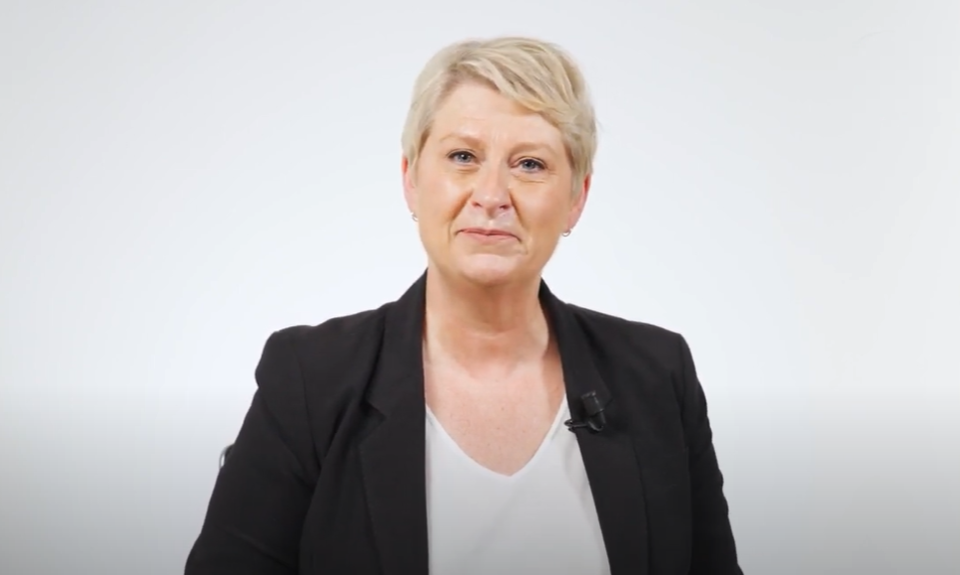Empowering students to become active players in their training?

Being aware of the responsibility of one’s writings as a future jurist or lawyer is essential. It is knowing this that Hélène Tostain, professor of English at SKEMA Business School, asked her students to write and publish articles on the particularly sensitive topic of abortion rights. Research, debates between students, creation of a blog, organization of exhibitions and a conference… The inverted pedagogy, under the guidelines of SKEMA’s Innovation and Learner experience department, enabled students to take the initiative and develop their ability to co-construct in groups, what’s more in a foreign language and within a framework limited by form and time.
The American dream. I have often heard this expression and wondered if the students of today still have that dream. That dream, to put it simply, is an ideal of democracy and freedom.
Yet in June 2022, following the U.S. Supreme Court’s decision to overturn the right to abortion, this dream became rather dim. This was what triggered the project we carried out with students from SKEMA Business School’s Master 1 in Business and Law management (DDA), directed by Isabelle Bufflier.
Students on the forefront
Abortion is an extremely divisive issue. At the very moment when France was considering enshrining the right to abortion in its constitution, the US Supreme Court was, on the contrary, reversing this fundamental right, consecrated in 1973 by the Roe vs Wade ruling. This paradox, with its legal, moral and cultural complexity, was the ideal subject of reflexion for my students as an English teacher at SKEMA.
Being Franco-American, I felt all the more concerned. I decided to accompany the students and bring them my knowledge of American institutions, with the aim of writing an article in English on this burning topic.
The project was perfectly in line with the SKEMA Way of Learning (SKWoL), a reversed pedagogy that makes students authors of their own learning. I coached them for a semester. It all started with research, in order to choose the angle that interested them most. I then led them to make short presentations, in small groups, to awaken their critical thinking skills. I wanted them to feed off each other’s feedback, all within a constrained framework, both in form and time, drawn up with the help of SKEMA’s pedagogical engineers.
Articles yes, but not only…
The involvement of SKEMA’s Innovation & Learner experience department was one of the key stages in their learning and perfecting of legal research and referencing. This is essential, especially for students of law, and especially for those who will become lawyers. They had to become aware that their writings could engage their civil and criminal liability. They had to learn to analyze, verify and cite their sources with great care.
The involvement of SKEMA’s Innovation & Learner experience department was one of the key stages in their instruction and improvement in legal research and referencing. This is essential, especially for students of law, and especially for those who will become lawyers. They had to become aware that their writings could engage their civil and criminal liability. Great care had to be taken in analyzing, verifying and citing their sources.
Read the article by Adam Ouayda, who was involved in the project:
Abortion in the Middle East: It’s not only about religion
Twenty-three articles emerged from this project. To host them, we designed a dedicated blog with the students. However, we also wanted to showcase them in a different way. We created a digital and physical exhibition to share our research and articles with the SKEMA community. We inaugurated the exhibition during International Women’s Rights Week in March, and backed it up with an exhibition on women’s rights.
Students were given the opportunity to “pitch” their subjects, and were able to debate with guests such as a representative of the Lille planned parenthood organization and a specialized lawyer. The unique feature of the exhibition, which was on display at our campuses in Lille and Sophia Antipolis, was the inclusion of QR codes linking to the blog posts.
A global project
These articles are not editorials, they are not intended to express an opinion in any way, but rather to be informative. The topics covered are wide-ranging, from access to abortion to the religious questions it raises, from the choice of living or dying to the place of the US Constitution and its amendments in today’s world.
The project was a global one that always put the students at the heart of the project in a proactive way. Making them responsible and decision-makers gave them the desire to get involved and co-construct. By giving them the choice, by empowering them to decide together, they had to listen to each other, take an interest in their classmates’ subjects, learn to use research tools and help each other.
A project like this takes several months to build , and it’s precisely the fact of carrying out a project of this scale, over a long period of time, that made the students so enthusiastic and involved. They became more responsible, more autonomous, and took great pride in it, just as we did. Propject for which Isabelle Bufflier and I were awarded SKEMA’s Pedagogical Innovation Prize.
Watch the video in French, produced with FNEGE.



